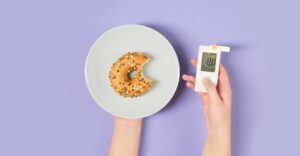In years past, many people treated various body parts as distinct. If you had a heart or knee problem, your doctor probably didn’t look much beyond the mechanical defects causing your symptoms. Today, however, more medical professionals realize that the body works more holistically, with harms affecting one system impacting several others.
Your endocrine system is no exception. It’s impossible to overstate the importance of balancing your hormones — doing so affects everything from your heart health to your brain function. Many people don’t recognize, for example, that there are foods that balance hormones and others that send them into a tailspin. That is until they end up in the doctor’s office receiving bad news.
Fortunately, you can learn how to balance your hormones, which isn’t as challenging as you think. Most of it concerns diet, although other lifestyle choices also make a difference. Here’s what to eat for balanced hormones — and why it’s important.
The Importance of Balancing Your Hormones
Why is it impossible to overstate the importance of balancing your hormones? They affect the functioning of every other system in your body. For example, women with PCOS — polycystic ovarian syndrome — have twice the risk of heart attack and stroke. Estrogen and other hormones like your thyroid play crucial roles in cardiovascular system function.
It’s not only women who suffer from hormonal imbalances. Research shows that low testosterone levels in men can lead to fatigue, trouble concentrating and a lack of sex drive in men. Women also have small amounts of this hormone, and a deficiency can lead to similar symptoms.
Your hormones don’t all apply to your sex. For example, food consumption most directly impacts insulin and can also affect multiple symptoms. While it can throw your libido out of whack, it also contributes to non-alcoholic fatty liver disease. Left untreated, it can lead to cirrhosis, a life-threatening condition.
Fortunately, you can take proactive steps to maintain optimal hormonal health. Here’s a quick crash course on how to balance your hormones that will help you regain control.
How to Balance Your Hormones
If you want to know how to balance your hormones, much of it boils down to self-care. No, not the kind that has you lazing by a spa with an umbrella drink — the type the World Health Organization defines as habits that promote positive health and well-being while helping you manage existing conditions. Here’s what to do.
1. Diet
Changing your diet is first and foremost when asking how to balance your hormones. However, you don’t have to adhere to keto or become a vegan to see transformative effects. You should, however, know what to eat — more on that in the next section — and what to avoid.
It’s probably no surprise that foods high in sugar aren’t good for your insulin levels. Too much of the sweet stuff goes right into your bloodstream, where it contributes to insulin resistance. This condition occurs when your cells can’t use glucose for energy, causing your pancreas to release more of this hormone. As a result, you eat more and consume excess calories, leading to weight struggles.
Therefore, avoid foods with the added stuff. Fruits are okay — although high in sugar, the fiber slows absorption.
Another substance to pass on is white flour. Some versions contain a chemical byproduct called alloxan, which makes it double-trouble on your hormones. First, separating the bran and chaff leaves you with a fast-absorbing powder that spikes your glucose like sugar. Secondly, scientists use alloxan to destroy the pancreas — the insulin-producing organ — in laboratory animals.
Although both substances directly affect insulin, they also impact other hormones. For example, insulin resistance is associated with PCOS or polycystic ovarian syndrome. This condition often occurs in women who are estrogen dominant. Estrogen is a sex hormone that is essential to female reproductive health but is harmful in excess.
Furthermore, you should avoid excessive alcohol intake, as doing so can disrupt hormonal function. Later, you’ll learn what you should eat for balanced hormones.
2. Exercise
Exercise is another way to balance your hormones. Specifically, moderate exercise reduces your adrenaline and cortisol levels, two stress hormones that, of course, impact others. For example, women with excess cortisol often struggle with fertility.
Unfortunately, too many women believe the myth that working out will give them huge muscles. Please forget such nonsense. While those of both genders have testosterone, women do not produce enough of this hormone to end up looking like The Rock. If the weight room is your go-to gym jam, please don’t skip it.
The World Health Organization recommends that adults get between 30 and 60 minutes of movement daily. Why not add one or more of the following activities to your repertoire?
- Walking: The easiest exercise form for most — and it’s free.
- Workout videos: You can find fabulous free ones on YouTube.
- Bicycling
- Hiking
- Dance
There’s good news if you’re exercise-resistant: you don’t have to work out for long. Some studies suggest that routines that exceed an hour or are too high intensity can increase cortisol levels instead of lowering them. Like in diet, moderation is key.
3. Sleep
Scientists still don’t understand all the reasons why people sleep. However, adequate rest is crucial to hormonal balance. Too little shuteye raises cortisol levels, leading to symptoms like overeating or not eating enough.
Lack of sleep can disrupt the balance of several hormones in your body, including ghrelin and leptin. These hormones help regulate hunger and fullness. Lack of sleep can cause an increase in ghrelin, which can lead to increased hunger, and a decrease in leptin, which can lead to decreased feelings of fullness.
When you lack of sleep, you also increase your risk of developing insulin resistance. Insulin is the hormone responsible for regulating blood sugar levels. If your body stops responding well to insulin, you may develop diabetes or other health problems.
4. Have Sex
Sex might be the last thing on your mind when you have a hormonal imbalance, but it could be just what the doctor ordered. Research shows improved reproductive function among women who are sexually active as opposed to those who are not, regardless of age.
5. Talk to Your Doctor
Finally, certain medications impact your hormones. Others help restore balance. For example, women with hypothyroidism may experience symptoms similar to those seen in PCOS, like weight gain and fatigue. However, the right medication dose can restore them to healthy functioning. The good news is such prescriptions cost next to nothing, thanks to handy generics.
11 Foods That Balance Hormones
What are some foods that balance hormones? While avoiding the substances listed in the second section will go far, you may wish to add more of the following to your diet, depending on what you try to increase.
1. Foods That Balance Hormones: Testosterone
Adding more of the following to your diet could help increase your testosterone levels:
- Ginger: It’s rich in antioxidants for sperm health.
- Oysters: Contain high levels of zinc, necessary for healthy gonadal function.
- Pomegranates: Reduce stress and blood pressure, influencing libido and fertility.
- Onions: An extract increases testosterone in rats.
2. Foods That Balance Hormones: Progesterone:
Are you estrogen dominant? Try consuming more of these foods that may boost progesterone.
- Chocolate: Dark chocolate contains magnesium, an essential mineral for progesterone production.
- Chicken: A complete lean protein that contains all the essential amino acids for hormone production.
- Pumpkin seeds: These are high in magnesium and zinc.
3. Foods That Balance Hormones: Estrogen
Rounding out our foods that balance hormones list are four favorites to boost estrogen production.
- Flax and sesame seeds: These contain lignans, vital for female hormonal balance.
- Soy: This stuff works primarily in post-menopausal women. It may work as an anti-estrogen in pre-menopausal females — experiment to judge your reaction.
- Rye: Rye can help with estrogen dominance by reducing free circulating levels of this hormone in the blood.
- Legumes: These may increase the production of estrogen.
What to Eat for Balanced Hormones
Your endocrine system affects nearly every other aspect of your body. Learning how to balance your hormones is part of positive self-care.
Magnesium is an essential mineral that plays a role in a wide range of physiological processes, including the regulation of hormones. It is involved in the synthesis, metabolism, and regulation of various hormones, including testosterone, estrogen, and insulin.
Low levels of magnesium have been associated with hormonal imbalances, including diabetes and PCOS. It can also increase your stress levels, since magnesium plays a role in the regulation of stress hormones like cortisol. To fight off the lack of magnesium, it’s best to eat food that contains magnesium, such as nuts, avocadoes, and dark chocolate. Research suggests that magnesium supplements may be helpful in reducing the severity of stress and anxiety, so you can try magnesium supplements too.
Consume more of these foods that balance hormones and cut back on those to avoid. You’ll be well on your way to better overall health once you understand the importance of balancing your hormones.








